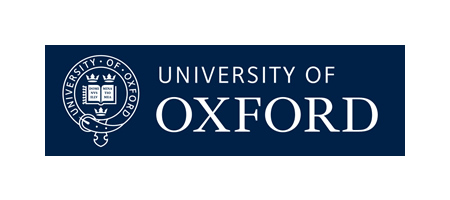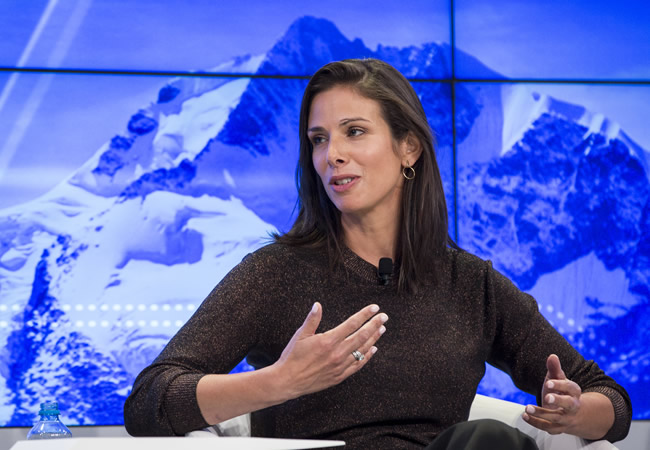« Ducati Global Dealer Conference 2020 held Digitally. | Main | World Economic Forum: Global leaders to shape the Davos Agenda ahead of ‘the crucial year to rebuild trust.’ »
November 23, 2020
Oxford University announces its breakthrough on Global COVID-19 Vaccine.


Photo: Rachel Botsman, Visiting Academic and Lecturer, Saïd Business School, University of Oxford, United Kingdom, speaking during the Session “In Technology We Trust?” at the Annual Meeting 2018 of the World Economic Forum in Davos, January 23, 2018. Image provided by & Copyright World Economic Forum / Faruk Pinjo.
Oxford, November 23, 2020 — The University of Oxford, in collaboration with AstraZeneca plc, today announced interim trial data from its Phase III trials that show its candidate coronavirus vaccine, ChAdOx1 nCoV-2019, is effective at preventing COVID-19 (SARS-CoV-2) and offers a high level of protection.
An early indication that the vaccine could reduce virus transmission from an observed reduction in asymptomatic infections.
There were no hospitalized or severe cases in anyone who received the vaccine. Extensive safety database from over 24,000 volunteers from clinical trials in the UK, Brazil, and South Africa, with follow up since April.
Crucially, the vaccine can be easily administered in existing healthcare systems, stored at ‘fridge temperature’ (2-8 °C), and distributed using existing logistics.
Large-scale manufacturing ongoing in over ten countries to support equitable global access.
Professor Andrew Pollard, Director of the Oxford Vaccine Group and Chief Investigator of the Oxford Vaccine Trial, said:
- ’ These findings show that we have an effective vaccine that will save many lives. Excitingly, we’ve found that one of our dosing regimens maybe around 90% effective, and if we use this dosing regimen, we could vaccinate more people with a planned vaccine supply. Today’s announcement is only possible thanks to the many volunteers in our trial and the hard-working and talented team of researchers based around the world.’
Professor Sarah Gilbert, Professor of Vaccinology at the University of Oxford, said:
- ’ The announcement today takes us another step closer to the time when we can use vaccines to bring an end to the devastation caused by SARS-CoV-2. We will continue to work to provide detailed information to regulators. It has been a privilege to be part of this multi-national effort which will reap benefits for the whole world.’
Following the trial reaching the target for interim analysis, the independent Data and Safety Monitoring Board (DSMB) recommended that the Oxford team conduct its first analysis on all the cases with data locked on November 4, 2020.
Additional cases may accrue by the time of the final analysis, and future studies will determine the duration of protection. No severe safety events related to the vaccine have been identified.
Oxford will now support AstraZeneca in submitting both the interim Phase III efficacy data and the extensive safety data to all regulators globally, including in the UK, Europe, and Brazil, for independent scrutiny and product approval, and emergency use. Many of these regulators have been reviewing the trial data on a rolling basis during the trial.
In parallel, Oxford is submitting the full analysis of Phase III interim data for independent scientific peer review and publication.
The interim Phase III data builds on Oxford’s phase I/II peer-reviewed trial results, showing that the vaccine induces potent antibody and T cell immune responses across all age groups and has a good safety profile.
The clinical trials, enrolling over 24,000 participants from diverse racial and geographical groups in the UK, Brazil, and South Africa will continue to final analysis. Trial teams are conducting further tests in the United States, Kenya, Japan, and India. The trial unit expects to have 60,000 participants by the end of the year. These trials will provide regulators with further information about the Oxford candidate vaccine’s efficacy and safety, including its ability to protect against and stop the transmission of COVID-19.
The Oxford vaccine (ChAdOx1 nCoV-19) is made from a virus, a weakened version of a common cold virus (adenovirus), that has been genetically changed so that it can’t grow in humans.
Adenovirus vaccines have been researched and used extensively for decades and have a unique benefit: they are stable, easily manufactured, transported, and stored at domestic fridge temperature (2-8 degrees C). It means they can be easily distributed using existing medical facilities such as doctor’s surgeries and local pharmacies, allowing for the vaccine, if approved, to be deployed very rapidly.
Oxford University’s collaboration with AstraZeneca has been crucial to the successful development of the vaccine and vital for its global manufacturing and distribution across the world. AstraZeneca already has international agreements to supply three billion doses of the vaccine, with access being built through more than 30 supply agreements and partner networks.
A key element of Oxford’s partnership with AstraZeneca is the joint commitment to provide the vaccine on a not-for-profit basis for the duration of the pandemic across the world and in perpetuity to low and middle-income countries.
Professor Louise Richardson, Vice-Chancellor of the University of Oxford, said:
- ” This is a great day for the University of Oxford and universities everywhere. Pushing at the frontiers of knowledge with partners across the globe and putting our extraordinary brainpower in service to society is what we do best.”
Source: The University of Oxford
|GlobalGiants.Com|
Oxford University’s ‘Vaccine for the World’ is Effective.
• Prime Minister Modi visits Serum Institute of India, Pune.
The Serum Institute of India is the manufacturing partner of the Oxford vaccine. The Pune-based firm has selected 17 sites in India, including PGI Chandigarh, to conduct the trial. A total of 1,600 candidates are taking part in the study.
Prime Minister Narendra Modi visited Serum Institute of India, Pune, on November 28, 2020, and interacted with the team at the Institute. In a tweet, the Prime Minister said, “Had a good interaction with the team at Serum Institute of India. They shared details about their progress so far on how they plan to ramp up vaccine manufacturing further. Also took a look at their manufacturing facility.”
Had a good interaction with the team at Serum Institute of India. They shared details about their progress so far on how they plan to further ramp up vaccine manufacturing. Also took a look at their manufacturing facility. pic.twitter.com/PvL22uq0nl
— Narendra Modi (@narendramodi) November 28, 2020
— The Editor holds an Oxford Alumni Card and is a Member of the Oxford and Cambridge Society of India.







Edited & Posted by the Editor | 8:40 AM | Link to this Post







